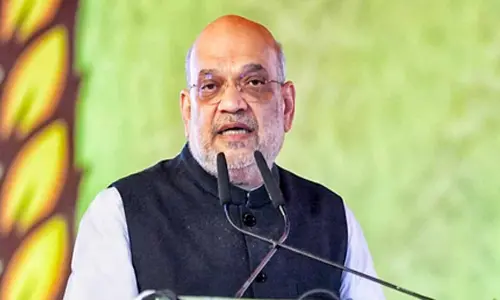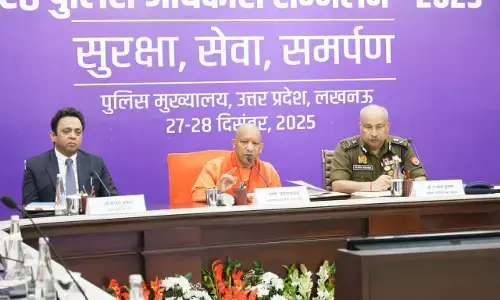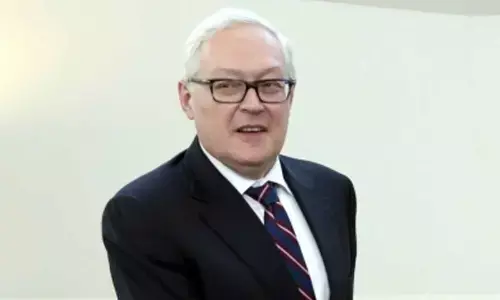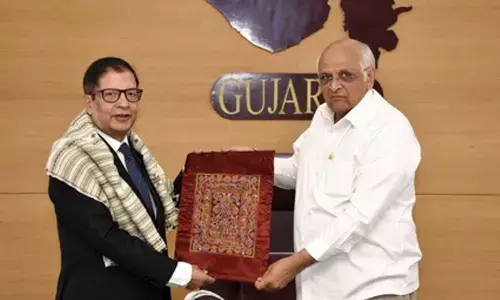'No first use of Nukes' can change

What happens in future depends on circumstances, says Defence Minister
New Delhi: India may see a major shift in its nuclear weapons doctrine by doing away with a 'no first use policy' in the future, Defence Minister Rajnath Singh said on Friday.
"Till today, our nuclear policy is 'No First Use'. What happens in future depends on the circumstances," media reports said quoting the minister who was at an event in Pokhran, the site of India's nuclear tests in 1998.
The comments come in the midst of heightened tensions between India and Pakistan after the Indian government revoked Article 370 that gave special status to Jammu and Kashmir.
Pakistan had condemned the move. In February this year, India had called Pakistan's nuclear bluff by conducting an aerial raid on a terrorist training camp in Pakistan after the 14 February Pulwama suicide attack.
In a tweet, Rajnath Singh added, "Pokhran is the area which witnessed Atal Ji's firm resolve to make India a nuclear power and yet remain firmly committed to the doctrine of 'No First Use'. India has strictly adhered to this doctrine.
What happens in future depends on the circumstances." The Defence Minister was in Pokhran to pay respects to former prime minister Atal Bihari Vajpayee on his first death anniversary. It was during Vajpayee's tenure as prime minister that India conducted five nuclear tests and became a nuclear weapon state in 1998.
Pakistan, in response, had conducted six tests – breaking out of the nuclear closet. India had brought out its nuclear doctrine in 1999 in which it had declared a 'no first use policy' i.e. it would not be the first to launch a nuclear weapon but retained the right to retaliate in response to an atomic strike.
In 2016, the then defence minister Manohar Parrikar had set off questions about whether the National Democratic Alliance (NDA) government was doing a rethink on its nuclear doctrine when he had asked why should India bind itself to a no first use policy.















